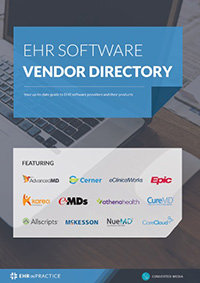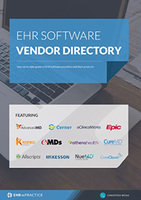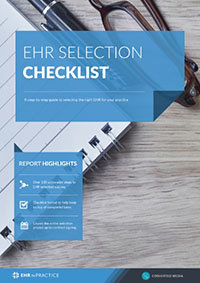The importance of EHR interoperability for medical billing
Interoperability means more than different aspects of an EHR working together to streamline processes, it means working with other systems, too. The interoperability of an EHR should be a practice's priority because it will allow the practice to streamline internal processes, such as medical billing, as well as to meet meaningful use requirements.
Do your research
The most obvious step to ensure an interoperable EHR is evaluating your vendor options. Most will tout interoperability as an important feature, but what do they mean by interoperability? For some, it simply means the interaction between different parts, capabilities, and features within the EHR will work well together. For others, it means meshing with other systems. HealthIT, a government-run blog focused on ONC announcements and Meaningful Use explains interoperability the best: "The ability of two or more systems to exchange information" and "The ability of those systems to use the information that has been exchanged."
Assuming a practice chose a fully-equipped EHR that includes billing capabilities, the practice needs to ensure the system can communicate with other office’s systems or with other internal systems such as an e-prescription system or an ERP system. A good example of this would be a hospital forwarding patient information to a primary care physician. The primary care physician's system should be able to link the information to the correct patient's record. When the patient comes in for a follow up, the provider should not have any difficulty locating the hospital visit information and diagnosis.
Interoperability between systems helps the billing department by allowing the exchange of information about patient care. When an insurance carrier requests additional information, especially related to health history, having access to the entire story helps billers obtain payment more quickly.
Recommended Reading: EHR Vendor Directory - Find EHR vendors offering medical billing modules
The best questions a practice can ask a vendor is how the EHR system communicates with other systems: Can it communicate with all systems or just others by the same vendor? Can it receive information from other systems?
Seamless, streamlined work
Nothing is more frustrating during medical billing than having to wait days, perhaps even weeks, for an operative report or office notes, especially if an insurance carrier is demanding them. An interoperable EHR means efficient, seamless workflow. There shouldn’t be any delays between information entered in one location (for example, the patient's record), and its visibility to someone working elsewhere (for example, the lab or the billing department). The information should be immediately readable and accessible throughout the different, interlocking parts of the EHR. Similarly, if another medical provider is waiting for test results run by your practice, the information should be immediately accessible there (once approved by the practice's provider, of course).
Increased patient satisfaction and care
Having access to your record is important for many patients, particularly if they have multiple medical providers and related medical conditions. It is imperative for provider X to know how provider Y is treating a patient. Many web-based EHR systems include the capability for patients to access and view their health record. While a phone call after tests is still important, a patient should be able to see, real-time, when a test's results have been entered into a practice's system (again, after provider review and approval). For your medical billing department, allowing your patients to see what tests were done helps medical billing specialists explain copays, co-insurance and deductibles more easily after insurance processing.
Free white paper

EHR Vendor Directory
Get the most up-to-date directory of EHR software vendors. Find the best software for your practice.

Featured white papers
Related articles
-

EHR interoperability challenges and solutions
Why EHR interoperability is important, and how to improve it
-

Top requirements for medical billing
Key features to consider when selecting an EHR for medical billing
-

Medical billing software: how it takes the strain off your finance team
Three areas where medical billing software can make life easier for your finances team



